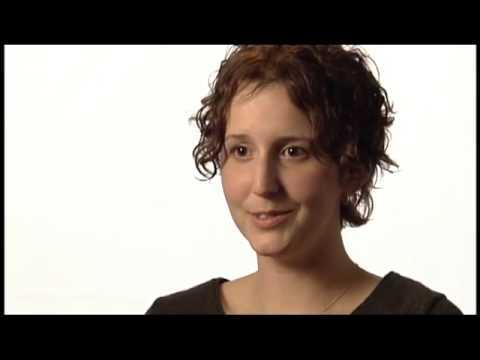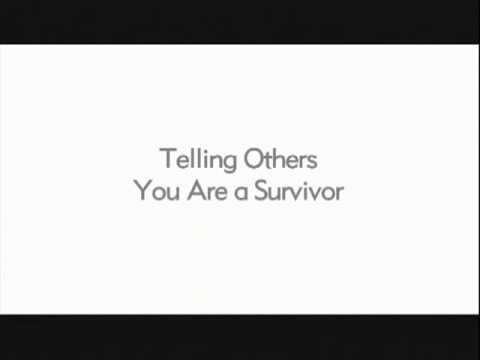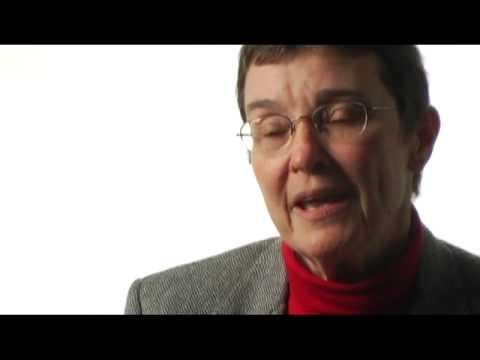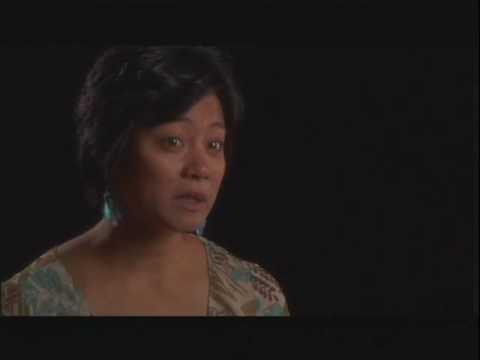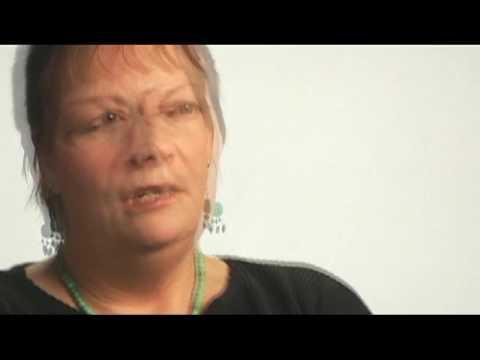Susan C.
I became a cancer survivor in February of 1992. What alerted me to the fact that there might be something wrong was a conversation with a girlfriend. She actually came to me and said, “Susan, do you remember when we were laughing the other night about the fact that our bottoms hurt?” It was kind of a funny story. She said, “You know, my bottom hurts too. I want to go to the doctor, but I’m afraid to go by myself.” And I said, “Okay. Well, I’ll go with you.” I probably would have never gone and would have ended up in much worse condition than I am now.
The intestinal problems after colon cancer were horrible. The way I dealt with it was with humor. My children also dealt with it with humor. I was newly divorced. And so after, and actually during my treatment, I was dating. And it’s not the average date one would have, where you’re at dinner at the dinner table, and oh, whoops, and there you go running to the bathroom. Things just take on a different perspective. It is what it is. It’s part of who I am now.
I don’t really have a lot of physical symptoms anymore. I’ve gotten a grip on what foods make me have a stomach ache, what foods give me diarrhea and what foods don’t agree with me. So, I stay away from those things. But the physical symptoms, I’ve finally gotten a grip on. I don’t have to stop at the McDonald’s bathrooms anymore. I still feel like I need to write a letter of apology to those people, but I think I’m normal. I know I’m normal.
I think we forget that the doctors are just as afraid of us as we are of them. Human nature from a medical professional’s point of view is fear makes people do things differently. And if they don’t know the answer, they shrink. Some doctors and nurses will shrink away from it, rather than saying, “You know what? We don’t know the answer, but we’re in this together, and we’ll do the best we can.” I walked into my visit one morning, and I said to my doctor, “I heard about this, and it has some kind of an effect on cancer.” And he turned to me and he said, “You know what? So-and-so up at the research center in Chicago is studying that. Let me call him right now and see if he’s in his office.” Right there, he picked up the telephone and dialed the number. I don’t remember what ended up happening with that, but it made me feel like he heard me, cared about my question, and was curious enough to look into it. Maybe it would help me or somebody else. At that moment, my whole take on my treatment shifted.
I hear over and over again from friends that their doctor won’t call them back. They have had an MRI or some big test, and they’re sitting at home waiting for the doctor to call them back. Well, guess what? The doctor’s not gonna call you back. I had a year of chemo, saw lots and lots of patients. The ones who seemed to do the best were the ones who didn’t take the doctor’s word for granted, the ones who said, “You know, I’m really a part of this team, and I do have a voice here.” Take somebody with you when you go to the doctor, somebody who knows how to listen to what the doctor’s saying. I didn’t hear the important information until way later. I wasn’t as keyed in to how important it was for me to do the things I needed to do in terms of the treatment plan. If you don’t have someone, take a tape recorder, keep the tapes, and listen to them.
When I was so close to the diagnosis, the cancer was who I was. When I was starting to date again, I would meet someone and say, “Hello, I’m Susan Cooley, and I have colon cancer.” And they’d roll their eyes and never call back. You know, they might not have called back anyway, but now, it’s just not part of who I am everyday. My lifestyle as a cancer survivor has really changed. I’ve always been a pretty spontaneous person, but now I seize the day. Let’s do what’s out there to do right now. As a long-term survivor of a life-threatening illness, I’ve become stronger and yet more vulnerable. I let a whole lot of stuff slide off my back. I choose my battles differently. I’m a different person because of it.
My children have heard me give some talks to different groups. I’ve taken them along with me, because I want them to see who I am as a person. Part of what I’ve done as a cancer survivor is I’ve revealed more of my real self to my children. One by one they’ve said, “You mean, you had cancer? And you mean, you might have died?” In retrospect, it’s a great trick to do to children as they’re becoming teenagers because they realize, “Oh, my goodness, my mother might not be here,” so they never have turned on me as teenagers. We get along great. They get along great with each other. It’s not perfect, don’t get me wrong, but there was something about that that made our relationship different and more real. They’ve seen a lot of things in me that I certainly never saw in my parents. And I’m happy about it.
I’m not afraid to die anymore. As a single parent, I used to be really afraid. If I died, what would happen? I’ve really sorted through all that. I’ve sorted through, what will become of my children? Who will take care of them? What about their dad, my ex-husband? What’s right for them? And I have really done a whole lot of sorting that out. If a plane crashes tomorrow, and I’m in it, I feel okay. And if I’m diagnosed with some gruesome disease, I feel equipped to be okay with it, and that my children will be okay, and that we’ll get through it, and it’ll be all right.
For me, the financial thing is huge. I’m going to stay at my job and do whatever it takes to stay there, because I really have had to look at the hard cold facts and realize that I need to keep my health insurance. I’m lucky enough to have a job I love and have tenure there. I’ve taught my children about the value of health insurance. I talk to friends all the time who are either self-employed or going in and out of the workplace, and it is mind boggling how much it costs to get health insurance of any sort. I’m teaching my children about it.
When sitting in the chemo ward, inevitably there would be someone on either side of me who either was retired, out of work or didn’t have health insurance. I saw people who were camping out in a Winnebago because they couldn’t afford a place to stay while they were having their treatment. I saw couples who divorced because the patient who had the cancer didn’t want the financial burden of all of these medical expenses to be left with the possibly surviving spouse. It’s a huge, huge issue. The need for keeping my health insurance has really grounded me. It affects what I do for money, what I do in my profession, what I do for a living. I need the health insurance. I also need to find meaning in my work, so that it becomes richer and richer for me.
A survivor is someone who takes what they’ve been dealt and tries to make the most out of it. I think about making lemonade out of lemons. I wouldn’t have been as grown up as I am now if I hadn’t had this experience. I know more about who I am. I know more about what I care about. I know where to draw the line. Survivorship to me means to take whatever life has dealt me and do the best I can with it.
I think that I just have an abiding faith that life is what it is, and that we have choices along the way in how we live our lives, and in some things, we really don’t have a choice. I’m not sure if hope is exactly what it is. It is more faith. And I’m not talking about religious faith or a spiritual faith, but just kind of this abiding faith that whatever happened was gonna happen. There are choices in how I respond to different things, but I have a faith that life is what it is. We have choices along the way in how we live our lives, and in some things, we really don’t have a choice. Hope for me really means hope for the future of treatments for these kinds of illnesses. Hope is broader for me. It’s for the whole universe.
My name is Susan Cooley, I’m 52 years old, and I’m a cancer survivor.

